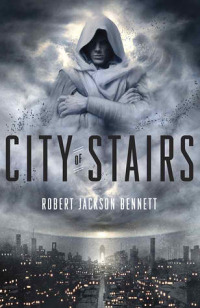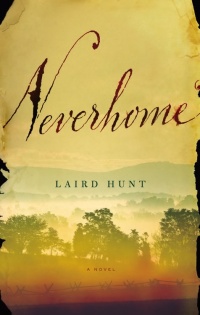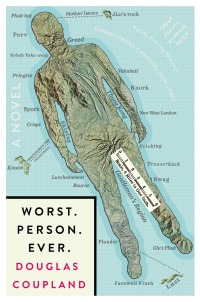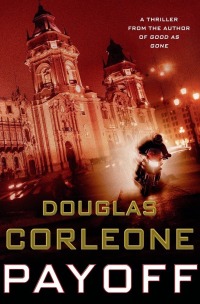The Ultra Thin Man by Patrick Swenson
 Friday, September 12, 2014 at 9:18AM
Friday, September 12, 2014 at 9:18AM 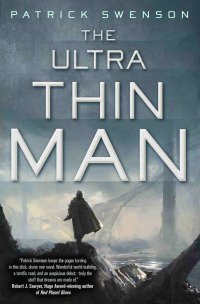
Published by Tor Books on August 12, 2014
Although The Ultra Thin Man does feature two detectives, Dashiell Hammett this isn't. Neither Patrick Swenson's unremarkable prose nor the plot of his science fiction mystery excited me. While I would not condemn The Ultra Thin Man as a bad novel, there are so many sf mysteries more worthy of attention that I cannot recommend this one.
The Union consists of human and alien worlds. The two nonhuman members of the Union are the Memor (good aliens that gave humans the technology to travel between worlds) and the Helk (unfriendly aliens that apparently resemble bald-headed wookies). Ribon is the largest world in the Union, but any human colonists on the planet who are unable to flee will soon be wiped out by Ribon's moon, which is fragmenting as the result of antimatter explosions.
Former private investigators David Crowell and Alan Brindos are now under contract to the Network Intelligence Organization. Their primary concern is the Movement of Worlds and its Helk leader, Terl Plenko. They suspect that Plenko is responsible for the destruction of Ribon's moon and other mayhem. While Brindos goes off in search of Plenko, Crowell discovers that bad guys within the NIO are setting him up for a fall.
The plot centers upon an ultra thin wire that allows a combination of particle acceleration and nanotechnology to do something (I won't say what) to life forms. Brindos experiences the effects of this technology in ways that are probably meant to add excitement to the plot. Unfortunately, Brindos is such an empty character I didn't care what happened to him. The novel's title notwithstanding, he's no Ultra Nick Charles. Crowell, who narrates half the chapters in the first person, is equally devoid of personality. We don't see much of the reclusive Memor but the Helk we encounter do not seem any more alien than a typical All Star Wrestler.
I don't want to describe the plot since it is so dependent upon surprises. Suffice it to say that the convoluted conspiracy did not engage me. The novel lacks dramatic tension but it does contain a fair amount of action and it moves at a brisk pace. Had the characters been better, perhaps I would have found the plot more involving, if not convincing.
A hundred years in the future, are people going to be saying "I needed to stay on the down low?" I doubt it. I'm not sure how many people still use that expression today. That's only one example of a writer who didn't give enough thought to his prose. Swenson's writing style isn't awful by any means, but it too often lacks polish. The epilog seems to set up the possibility of a sequel but nothing about this novel tempts me to read the next one.
NOT RECOMMENDED
